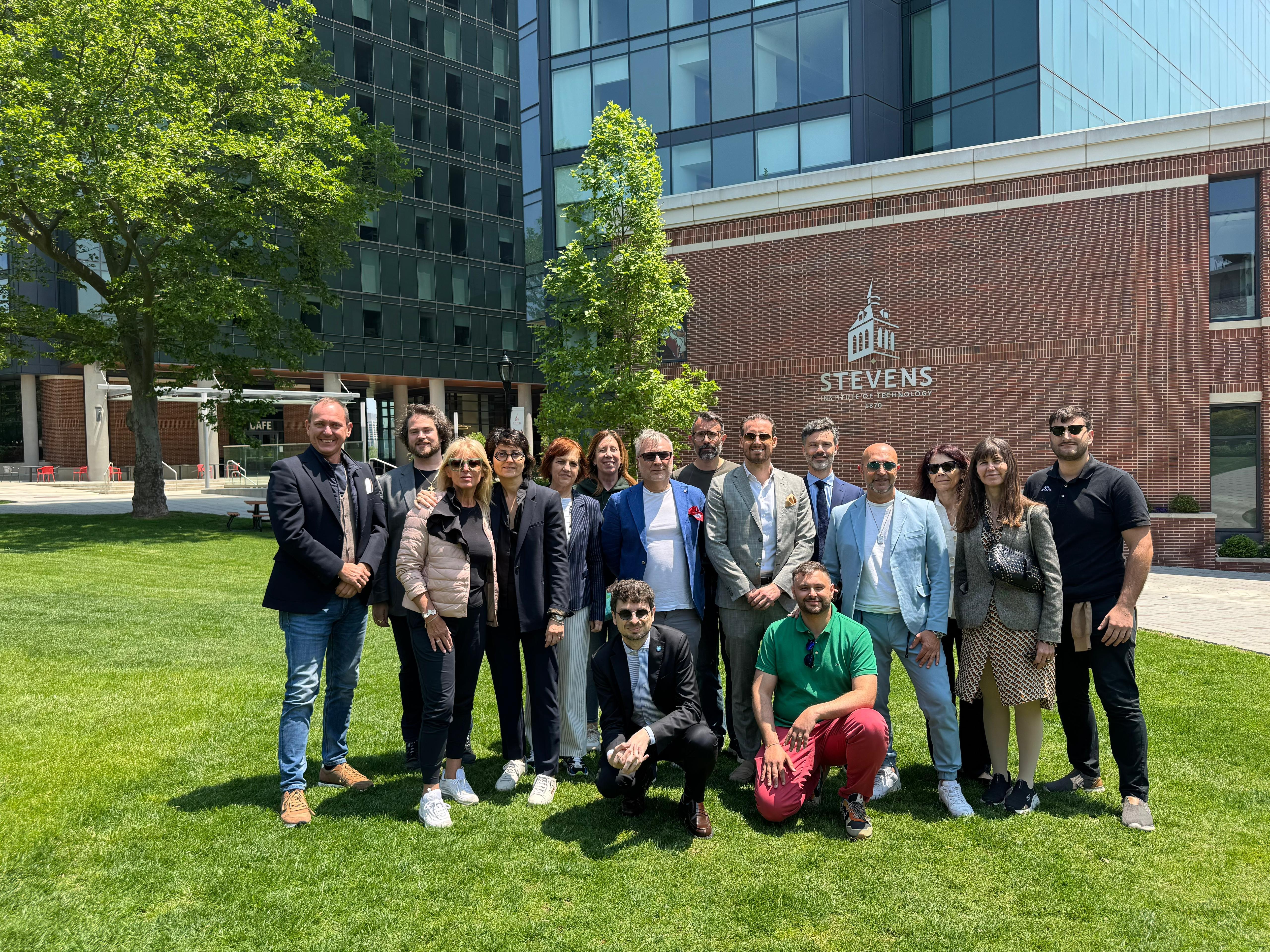The last lecture closed with a view of Manhattan at sunset from across the Hudson: from May 31 to June 4, the Stevens Institute of Technology campus in Hoboken hosted Finance – Accounting Week for Real Estate Developers. For four days, a delegation from ANSVI, the association of Italian real estate developers, returned to the United States to engage with the American mindset. Lectures brought together lecturers such as Mascia Ferrari and Italian-American professionals – including Sarah Baderna, Lavinia Giuliani Ricci and Alex Carini – in a dialogue on how to position projects and businesses in a highly competitive real estate market.
Lectures also discussed Real Estate as a Service and how renting out flexible space is redefining business risk; visits to Upper West Side brownstones, on the other hand, showed how tokenization can finance the restoration of historic buildings, while in Brooklyn participants observed cohousing models created to meet the demand for affordable housing.
This year’s mission continues a path started in 2023, when ANSVI had taken participants to visit iconic shipyards such as Hudson Yards. On that occasion, President Daniele Cattaneo had insisted on the need to “intercept trends before they arrive in Italy”; a concept echoed by Vice President Andrea Mazzaro, according to whom the U.S. observatory “helps to understand where capital will move in the coming years.” The six-hour time difference, in short, has become an ideal line along which to experiment with ideas to import back home.
The relationship with the Stevens Institute will result in mutual benefits. The university, which specializes in engineering and management, gains privileged access to a network of Italian companies; ANSVI gains classrooms, laboratories and faculty who can translate topics such as “reputation management” and capital strategies into working methods. Labs will then be able to simulate in real time the issuance of digital assets related to an individual property, now that the ability to read capital cost and governance has become as centered as architectural design. Finally, the arrangement will be formalized into a Reputation Research program to host new professional delegations-a “structured” model designed to combine academic training and case studies in the field.
The next step is already set: from May 31 to June 4, 2025, Finance – Accounting Week for Real Estate Developers will explore how blockchain and tokenization are transforming real estate into tradable digital shares, with implications for financing, due diligence and project governance. The course will also address emerging housing models-from cohousing to Real Estate as a Service-and related tax issues. Guided tours will take participants inside Upper West Side brownstone townhouses and Brooklyn’s flexible workspaces to observe the impact of these innovations on the ground.
The path started this year continues the internationalization strategy that ANSVI had inaugurated in 2023 with the forum on architecture and innovation at the Italian Cultural Institute in New York: then the focus was on urban regeneration, today the priority is the financial management of new digital tools. The organizers’ belief is that knowing U.S. practices and regulations in advance will enable Italian operators to intercept global capital and better govern the energy transition and the evolution of European real estate markets.
The article Between blockchain and tokenization, ANSVI targets training in US comes from TheNewyorker.

